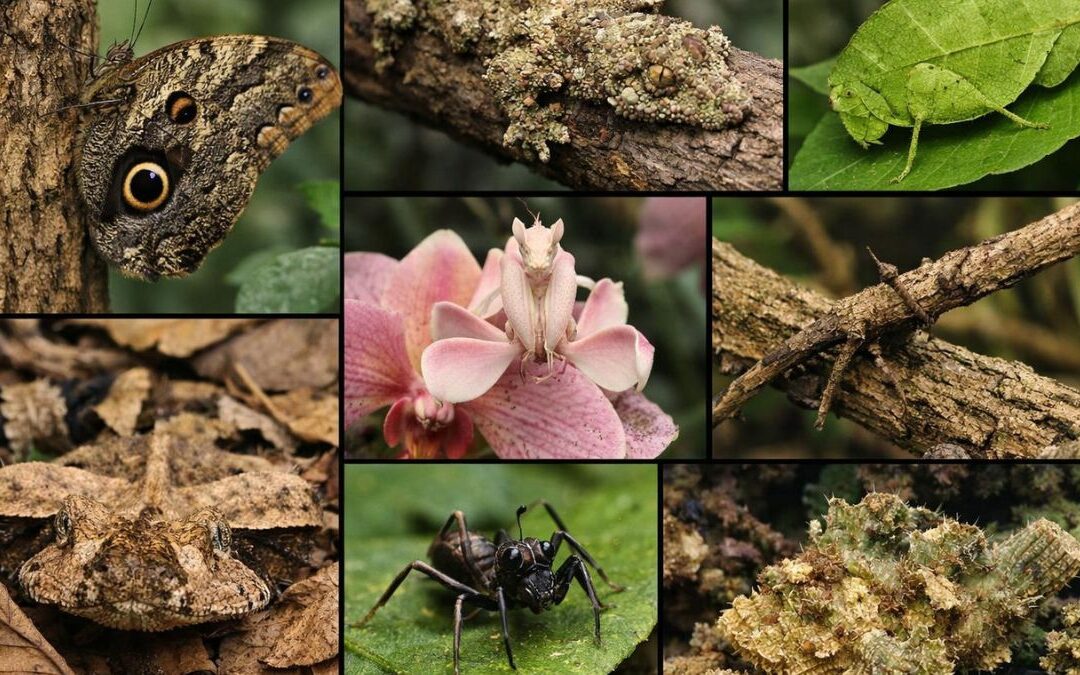SparkCast Episode
The SparkCast episode is not just a reading of the article below; it’s a lively discussion based on the topic of the article, so you don’t want to miss it!
[ppp_patron_only level=5]
The Practice of Wonder and Awe Transcript: Click to Open
The Practice of Wonder and Awe
Have you ever paused, like genuinely stopped, faced with something so huge or maybe so intricate that your mind just goes quiet? You know that profound sense of awe, that breathtaking moment when the world seems to just stand still for a second? What happens to that feeling as we, well, as we navigate adulthood? And what if reigniting it could actually change your perspective, make you feel, I don’t know, more connected, kinder, maybe even less weighed down by everyday worries? Welcome to a new Sparkcast from English Plus Podcast. You’re tuned in to the Deep Dive. This is where we take fascinating ideas, pull out the really important bits from our research and sort of unpack them so you can get right to the core of what matters.
Today, we’re diving deep into something incredibly human, but often kind of elusive, the whole concept of wonder and awe. We’ll explore not just what it is, but maybe why it seems to fade for so many of us as we get older, and crucially, how we can invite it back into our everyday lives. It is quite fascinating, isn’t it? How something so, I mean, so fundamental to being human, especially as kids, often gets pushed aside by our busy, you know, sensible adult lives.
We’ll connect the dots here on its surprisingly strong psychological and even neurological benefits. It’ll show you just how impactful these seemingly small moments of wonder can actually be for our well-being. Okay, so let’s unpack this a bit.
We often use words like wonder and curiosity almost, interchangeably, right? But our Deep Dive suggests there’s a really clear difference. Curiosity is, well, it’s about wanting an answer, filling an information gap. It’s the what or how.
So if that’s curiosity, what exactly is wonder then? Yeah, that’s a really important distinction to make. Wonder is, it’s something else. It’s that profound state, kind of cognitive and emotional, that you hit when you encounter something so vast or complex or maybe just new that your existing mental maps just can’t immediately process it.
It’s not just about wanting to find out why. It’s the feeling itself, that humbling awe, maybe standing at the Grand Canyon or, you know, the reverence you might feel listening to a really powerful piece of music or even just being totally fascinated watching ants work together, that perfect unison. In that moment, your sense of self, your ego, it tends to shrink a bit and your connection to the world or something bigger than you expands a lot.
Right. And what’s really grabbing me here is that this isn’t just, like, poetic talk. It’s not just a nice feeling.
There are real actual measurable effects happening in our brains and influencing how we act. Oh, absolutely. If we look at the neurology, well, experiencing deep wonder, studies show it can actually decrease activity in the brain’s default mode network, the DMN.
Yeah, the DMN. That’s the part linked to, like, mind wandering and self-focused thoughts, anxiety loops. Exactly.
It’s your brain’s sort of internal narrator, often rehashing worries, thinking about yourself. Ah, seems to disrupt that powerfully. It pulls your attention outwards so strongly that the DMN just quiets down.
It’s like your brain gets a short break from being focused on me, me, me. A mental reset button. Precisely.
And psychologically, this shift isn’t just about feeling good momentarily. The research points to increases in pro-social behaviors, things like generosity, kindness, feeling connected to others. It really can make our own problems feel less overwhelming because we get the sense of being part of something much, much larger.
Okay. So if wonder is this amazing beneficial thing, why did it seem to fade for so many of us as adults? It feels like we lose something important along the way. Our exploration pointed to a few key things that seem to, well, steal our sense of awe.
Yeah. One of the biggest culprits is definitely routine. As we get older, our lives tend to become more predictable.
Same routes to work, same people, same habits, day in, day out. And while that predictability can feel safe or efficient, it also shields us. It shields us from the unexpected, the novel, the very things that often spark wonder.
Yeah, that makes sense. And another huge one seems to be information overload. I mean, think about it.
We carry the answer to almost any question right here in our pocket. See a weird bird, boom, instant look up, name, species, facts, categorized, done. Right.
And while that’s useful sometimes, doesn’t it kind of short circuit the mystery that pure, simple, wow, what is that feeling gets replaced instantly with, oh, it’s that. It swaps the off for the answer almost too quick. Exactly.
And then there’s perhaps more subtly cynicism or maybe just critical thinking taken a bit too far. We’re often taught, especially as adults, to be critical, to analyze, to deconstruct everything, which is valuable, of course. But sometimes that focus on knowing and analyzing can overshadow the ability to simply appreciate something, to just experience it without judgment, to just be amazed.
So putting that together, it sounds like the world we’ve built, while super efficient and knowledgeable in many ways, might be accidentally making it harder to experience awe. Not because the wonder isn’t there, but because our attention is just cluttered. Exactly.
But the good news, and this is really key. Yes. Wonder isn’t some rare commodity you have to hunt down.
It’s actually everywhere all the time. Okay. So how do we tap into it? How do we retrain our attention? Well, the material we looked at offers some really practical starting points.
One idea is to go small, like literally get a magnifying glass or just get really close, like at a single flower petal, a tiny insect, maybe frost on a window pane. The sheer complexity, the intricate beauty you find when you zoom in on the miniature world, it can be absolutely staggering if you just pause and really look. I like that.
Or the opposite approach, go big, like intentionally spending time in nature, looking up at the stars properly, away from city lights, or watching a huge thunderstorm roll in, feeling the power, standing by the ocean, allowing yourself to feel small, humbled by the vastness, letting your mind try to grasp that scale. And another really crucial one is to consciously engage your senses. Maybe listen to a piece of music you’ve never heard before, but with your eyes closed, really only focusing on the sound, or when you eat, actually taste your food.
Notice the textures, the different flavors unfolding. Pay close attention to just the physical sensations around you, the breeze, the sun on your skin. It encourages what some call a beginner’s mind.
Ah, the beginner’s mind. That phrase really resonates. It’s like seeing things fresh without all the labels and preconceptions we usually slap on them.
It reminds me of Shoshin in Zen Buddhism, right? Approaching things with openness, like it’s the first time. Exactly. Letting go of what you think you already know.
And that connects directly to what our research highlighted about the scientific mindset, doesn’t it? Because the greatest scientific leaps didn’t start with having all the answers. They started with someone falling in love with a question. Absolutely.
Every big discovery, gravity, evolution. It started with someone looking at something ordinary, something every day, and asking with that beginner’s mind, wait, why? How does that work? Allowing themselves to be utterly amazed by something seemingly obvious. So this really brings up a challenge for everyone listening, right? It does.
In this world we live in, with instant answers, endless distractions pulling at us, how often do you genuinely allow yourself to just be amazed, to just stop and wonder? So here’s a little exercise, a challenge for you today. Find one thing, just one ordinary thing near you right now. Could be a pen, your coffee mug, maybe a plant.
And for just a minute or two, try describing it as if you’re an alien, like you’ve never seen anything like it before. Strip away all your assumptions about what it is or what it’s for. Describe its shape, its texture, its color with completely fresh eyes.
Speculate wildly about its purpose. Express genuine curiosity, maybe even confusion. Yeah, like I’m observing this strange hard cylinder.
It’s white, smooth, has this weird loop on the side. Maybe it holds some kind of energy liquid. Exactly.
Its function is a total mystery. The complexity is astounding. It forces you to ditch the routine way of seeing and look at the familiar with fresh, truly wonderful eyes.
What’s really striking here is just how simple it can be to re-engage with this incredibly beneficial state. The practice of cultivating wonder, of inviting awe, it isn’t really about needing grand, spectacular experiences all the time. It’s more about deliberately training your attention, training it to notice the extraordinary that’s already present in the ordinary moments all around us.
We really hope this deep dive has sparked some, well, some surprising insights for you and maybe given you a few practical tools to actively invite more wonder into your own life. Keep that beginner’s mind switched on. Don’t be afraid to ask why and how about everything.
And just allow yourself consistently to be amazed by this incredible world we’re in. And this was another Sparkcast from English Plus Podcast. Don’t forget to check out the full article on our website, englishpluspodcast.com for more details.
Thank you for listening. Stay curious and never stop learning. We’ll see you in the next episode.
[/ppp_patron_only]
When Did You Last Look Up?
I mean really look up. Not just to check the weather, but to gaze at the sheer, impossible blue of the sky or the sprawling, glittering tapestry of the night stars. When was the last time you were stopped in your tracks by something so vast, so beautiful, or so complex that all you could do was stare in awe? That feeling, that breathtaking cocktail of curiosity, humility, and delight, has a name: wonder. It’s a feeling we have in spades as children, but somewhere along the way to becoming “sensible” adults, we often forget how to access it.
What Exactly Is Wonder?
Wonder isn’t just curiosity. Curiosity is the desire to know, to find the answer. Wonder is the feeling you get when you confront something you can’t easily explain. It’s the awe you feel looking at the Grand Canyon, the reverence you feel listening to a powerful piece of music, or the fascination you feel watching a colony of ants work in perfect unison. It’s a cognitive-emotional state where you encounter something vast and complex that your current mental frameworks can’t immediately process. In that moment of processing, your sense of self gets a little smaller, and your sense of connection to the world gets a lot bigger.
Your Brain on Wonder
This feeling isn’t just poetic; it has real, measurable effects on you. Neurologically, experiencing wonder can reduce the activity in your brain’s default mode network, which is associated with self-referential, often anxious, thoughts. It literally quiets the chattering narrator in your head. Psychologically, studies have shown that experiencing awe and wonder can increase feelings of generosity, kindness, and connectedness. It makes us feel like part of something larger than ourselves, which in turn makes our own problems seem a little less monumental. It’s a mental reset button.
The Thieves of Wonder
If wonder is so great for us, where did it go? A few culprits are to blame. First, routine. As we get older, our lives become more predictable. We travel the same routes, talk to the same people, and fall into habits that shield us from the unexpected. Second, information overload. We have the answer to almost any question in our pocket. If we see a strange bird, we can instantly look it up, name it, and categorize it, sometimes short-circuiting the pure, joyful mystery of the encounter. Finally, cynicism. We’re taught to be critical, to deconstruct things, which can sometimes come at the expense of simply appreciating them.
How to Cultivate Wonder in Your Everyday Life
The good news is, wonder isn’t a rare resource. It’s everywhere, waiting to be noticed. You just have to train your attention. Go small: Get a magnifying glass and look at a flower, an insect, or a snowflake. The complexity you’ll find in the miniature world is staggering. Go big: Spend time in nature. Look at the stars, watch a thunderstorm roll in, or stand at the edge of the ocean. Allow yourself to feel small in the face of that vastness. Engage your senses: Listen to a piece of music you’ve never heard before with your eyes closed. Really taste your food. Pay attention to the physical sensations of the world around you.
The Scientific Mindset
Ultimately, cultivating wonder is about adopting a scientific mindset in the best sense of the word. It’s not about knowing all the answers; it’s about falling in love with the questions. It’s about looking at the world with a “beginner’s mind,” as if you’re seeing everything for the first time. It’s the engine of all discovery. Every great scientific breakthrough started with a moment of wonder, with someone looking at an everyday phenomenon and asking, “Why? How?”
Your Invitation to Awe
So here’s your invitation. Today, find one thing, just one thing, and allow yourself to be completely amazed by it. Don’t try to explain it or categorize it right away. Just observe it. Be curious about it. Let yourself feel that little thrill of awe. It’s a reminder that no matter how much we know, the universe will always be more complex, more beautiful, and more mysterious than we can ever imagine. And that is a wonderful thing.
Final Thoughts
What is something that has recently filled you with a sense of wonder? It could be anything, big or small. Share your moment of awe in the comments below and let’s create a collection of wonders.
Discussion Questions
- Do you think technology (like smartphones and the internet) enhances our ability to experience wonder by giving us access to amazing images and information, or diminishes it by providing instant answers?
- Think about the difference between religious faith and scientific wonder. What do they have in common? How are they different?
- As we learn more and more about the universe through science, do you think the world becomes more or less wonderful?
Speaking Challenge
Here is a speaking challenge to help you practice expressing wonder. Pick an everyday object in the room with you right now (a pen, a coffee cup, a book). Take one to two minutes to describe it as if you are an alien seeing it for the very first time.
- Hint 1: Describe its physical properties with fresh eyes. “I’m observing a strange, rigid cylinder. It is white and smooth, with a curious C-shaped handle extending from its side.”
- Hint 2: Speculate on its purpose with curiosity. “It seems to be a container of some kind, perhaps for holding a hot, dark liquid that these humans seem to enjoy. What purpose could this ‘handle’ serve?”
- Hint 3: Express your sense of wonder and confusion. “The function of this object is a profound mystery. The complexity of these simple human artifacts is truly astounding.”
This exercise forces you to strip away your assumptions and look at the ordinary with a fresh, wonderful perspective.









0 Comments